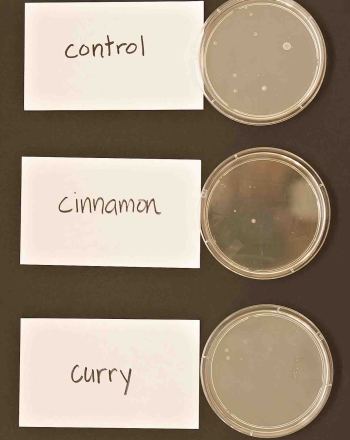Science project
Is The Ability To Wink Genetic?
Grade Level: 6th - 8th; Type: Biology- Genetics
Objective
In this experiment, we will find out if the ability to wink is genetic and also whether the “dominant” eye is also genetic or based on chance.
Introduction
Winking is a form of facial expression in which one eye is closed and the other is left open for a short amount of time. Not everyone can wink and more often than not, a person can only wink one eye comfortably.
Research Questions
- Is the ability of a person to wink related to genetics?
Terms to Know
- The eye
- Winking
- Facial expression
Materials
- Test subject families, the more the better (the families should be biologically related)
- Pen and paper for notes
Experimental Procedure
- Have your test subject family all try to wink.
- Record which member of the family can wink and which can not.
- Have each member try winking both eyes and ask them which eye is easier to wink even if they can wink both.
- Record the information.
- Repeat steps 1-4 for all your test subject families.
- Evaluate whether you see any trends presented in the abilities to wink of each family.
Suggested Chart
Example:
|
Families |
Family Member |
Can he/she wink? |
Which eye is easier to wink?
|
|
Family #1
|
Mom
|
|
|
|
Dad
|
|
|
|
|
Son |
|
|
|
|
Family #2
|
Mom |
|
|
|
Dad
|
|
|
|
|
Son |
|
|
|
|
Daughter |
|
|
|
|
Family #3
|
Mom |
|
|
|
Dad
|
|
|
|
|
Daughter
|
|
|
|
|
Daughter |
|
|
References
- http://en.wikipedia.org/wiki/Winking#Physiological_ability
- http://changingminds.org/techniques/body/parts_body_language/eyes_body_language.htm
- Andersen, Peter. (2007). Nonverbal Communication: Forms and Functions (2nd ed.) Waveland Press.
- Andersen, Peter. (2004). The Complete Idiot's Guide to Body Language. Alpha Publishing.
Disclaimer and Safety Precautions
Education.com provides the Science Fair Project Ideas for informational purposes only. Education.com does not make any guarantee or representation regarding the Science Fair Project Ideas and is not responsible or liable for any loss or damage, directly or indirectly, caused by your use of such information. By accessing the Science Fair Project Ideas, you waive and renounce any claims against Education.com that arise thereof. In addition, your access to Education.com's website and Science Fair Project Ideas is covered by Education.com's Privacy Policy and site Terms of Use, which include limitations on Education.com's liability.
Warning is hereby given that not all Project Ideas are appropriate for all individuals or in all circumstances. Implementation of any Science Project Idea should be undertaken only in appropriate settings and with appropriate parental or other supervision. Reading and following the safety precautions of all materials used in a project is the sole responsibility of each individual. For further information, consult your state's handbook of Science Safety.
Education.com provides the Science Fair Project Ideas for informational purposes only. Education.com does not make any guarantee or representation regarding the Science Fair Project Ideas and is not responsible or liable for any loss or damage, directly or indirectly, caused by your use of such information. By accessing the Science Fair Project Ideas, you waive and renounce any claims against Education.com that arise thereof. In addition, your access to Education.com's website and Science Fair Project Ideas is covered by Education.com's Privacy Policy and site Terms of Use, which include limitations on Education.com's liability.
Warning is hereby given that not all Project Ideas are appropriate for all individuals or in all circumstances. Implementation of any Science Project Idea should be undertaken only in appropriate settings and with appropriate parental or other supervision. Reading and following the safety precautions of all materials used in a project is the sole responsibility of each individual. For further information, consult your state's handbook of Science Safety.













